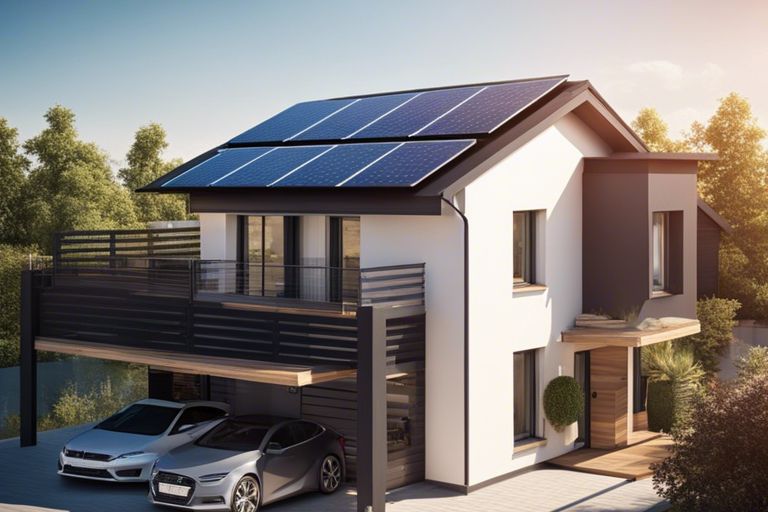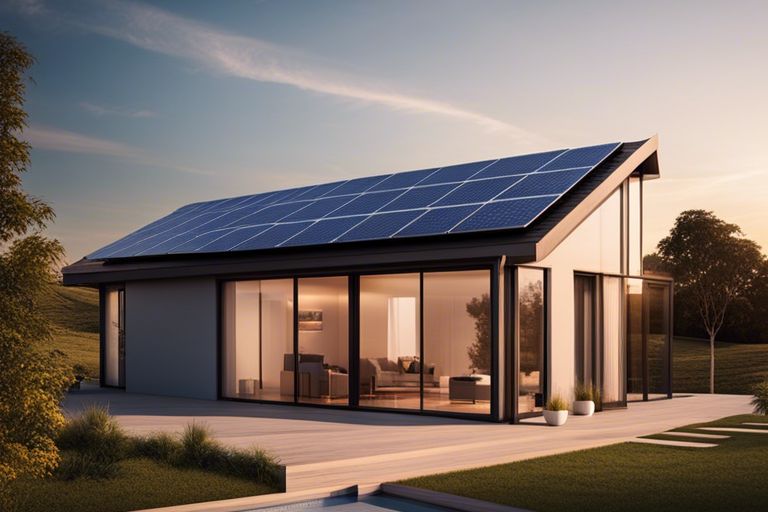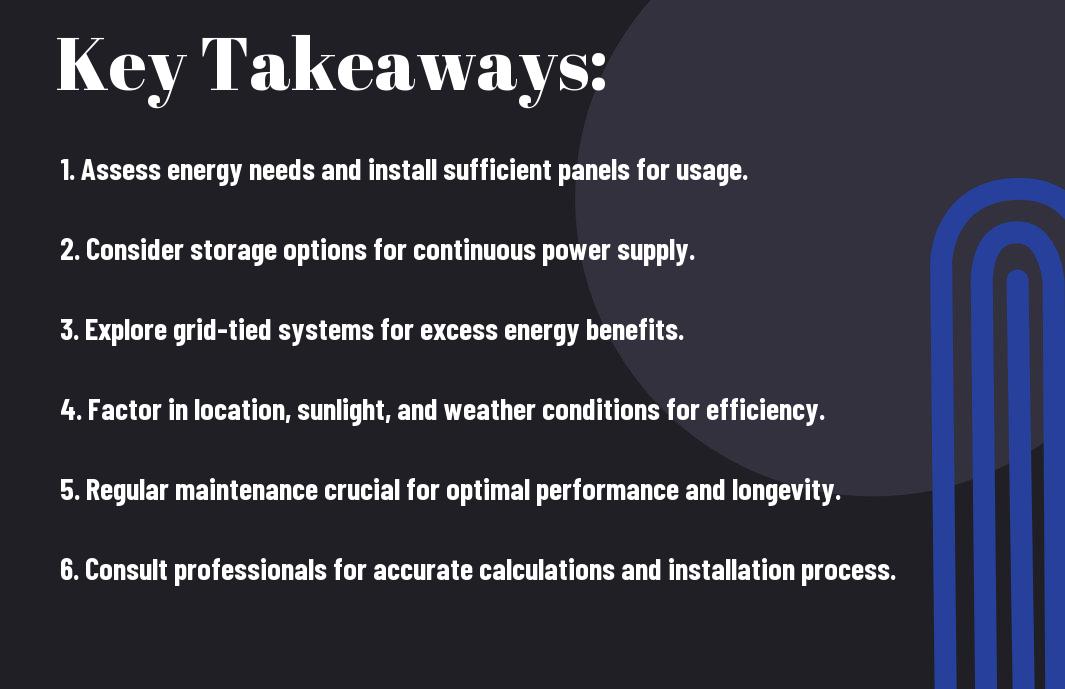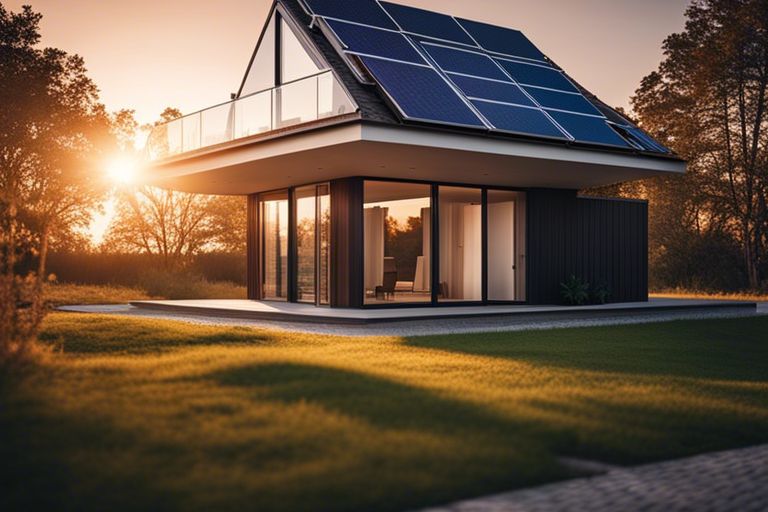Over the years, the idea of powering your entire house with solar panels has become increasingly popular. But is it really feasible for you to run your entire household on solar energy? In this informative blog post, we will investigate into the factors you need to consider when deciding if you can switch to solar power completely. From assessing your energy needs to understanding the size and placement of solar panels, we will guide you through the process of determining if you can indeed run your whole house off of solar panels.
Key Takeaways:
- Solar panels can provide enough energy to power an entire house: With the right solar panel setup, battery storage system, and energy-efficient appliances, it is possible to run your whole house off of solar power.
- Calculate your energy needs: Before converting to solar power, it is important to calculate your energy needs to determine the size of the solar panel system required to power your entire house.
- Consider financial incentives and rebates: There are often financial incentives, rebates, and tax credits available for installing solar panels, which can help offset the initial cost of transitioning to solar power for your entire house.
The Potential of Solar Power
How Solar Panels Work
For many people, the concept of powering your entire house with solar panels may seem like a futuristic idea. However, the technology behind solar panels is actually quite simple. Solar panels work by harnessing the sunlight and converting it into electricity through a process called the photovoltaic effect. This means that when sunlight hits the solar panels, the photons in the light are absorbed by the semiconducting materials in the panels, creating an electric current.
The Benefits of Solar Energy
Energy from the sun is a renewable source, which means it is abundant and will never run out. By harnessing this energy through solar panels, you can significantly reduce your carbon footprint and contribute to a cleaner environment. Additionally, installing solar panels on your house can lead to long-term cost savings on your electricity bills, as you will be generating your own electricity and relying less on traditional power grids.
The benefits of solar energy go beyond just financial savings. By investing in solar power for your home, you are also increasing the value of your property. Homes with solar panels are highly attractive to potential buyers due to the energy efficiency and sustainability they offer. So, not only are you saving money and reducing your environmental impact, but you are also making a smart investment in the future of your home.
Assessing Your Energy Needs
The first step in determining if you can run your whole house off of solar panels is to assess your energy needs. This involves calculating your energy consumption and identifying energy-intensive appliances in your home.
Calculating Your Energy Consumption
The key to understanding if your house can be powered by solar panels is to determine how much energy you currently consume on a daily or monthly basis. You can do this by looking at your utility bills and identifying your average kilowatt-hour (kWh) usage. This information will help you determine the size of the solar panel system you will need to meet your energy needs.
Identifying Energy-Intensive Appliances
On top of calculating your overall energy consumption, it’s imperative to identify energy-intensive appliances in your home. These are typically devices that consume a large amount of electricity, such as air conditioners, water heaters, refrigerators, and dryers. By pinpointing these energy hogs, you can better understand where your energy is being used and make decisions on how to reduce consumption or find alternative energy sources for these appliances.
Energy-intensive appliances are often the biggest contributors to your electricity bills. By identifying and potentially replacing or optimizing these appliances, you can significantly reduce your overall energy consumption and make it more feasible to run your entire house off of solar power.

Evaluating Your Home’s Solar Potential
Roof Size and Orientation
Potential solar panel systems require adequate space on your roof that is unobstructed by shading. The size and orientation of your roof will influence how much sunlight your solar panels can receive. Ideally, your roof should have enough space to accommodate the number of solar panels needed to meet your energy requirements. Additionally, a south-facing orientation is typically the most effective for maximizing sun exposure throughout the day.
Shading and Obstructions
One crucial factor to consider when evaluating your home’s solar potential is shading and obstructions. Trees, buildings, and other obstructions can significantly impact the efficiency of your solar panels. It’s necessary to assess the amount of shade your roof receives throughout the day to determine if installing solar panels is a viable option.
Homes with minimal shading and obstructions have greater solar potential and are better suited for harnessing solar energy effectively. If your roof is heavily shaded or obstructed, you may need to explore alternative locations for solar panel installation or consider trimming trees to optimize sunlight exposure.
Local Building Codes and Regulations
On your journey to evaluate your home’s solar potential, you must also consider local building codes and regulations. These guidelines may dictate the size, type, and placement of solar panels on residential properties. It’s necessary to familiarize yourself with these regulations to ensure that your solar panel installation complies with legal requirements.
Another aspect to consider is the permitting process for solar panel installation in your area. Understanding the necessary permits and approvals can help you navigate the process smoothly and avoid any potential setbacks.
Sizing Your Solar Panel System
Determining the Required System Size
Not sure how to determine the size of the solar panel system you need to power your entire house? Start by analyzing your energy consumption. Take a look at your past utility bills to understand your average daily and monthly electricity usage. By knowing how much energy you typically use, you can better estimate the size of the solar panel system required to cover your needs.
Your location and the amount of sunlight your property receives will also impact the size of the system you need. Areas with less sunlight may require larger systems to compensate for lower energy production. Consider consulting with a solar energy provider to help you calculate the optimal size for your home.
Choosing the Right Panel Type and Quality
To ensure your solar panel system effectively powers your entire house, it’s crucial to choose the right panel type and quality. You’ll come across various options, including monocrystalline, polycrystalline, and thin-film panels. Each type has its advantages and is suitable for different situations.
To select the best panel for your home, consider factors like space availability, budget, and efficiency. Monocrystalline panels, for example, are known for their high efficiency and sleek design, making them ideal for limited roof space. On the other hand, polycrystalline panels are more budget-friendly and offer a good balance between cost and performance. Thin-film panels are lightweight and flexible, making them suitable for irregular roof shapes.
Quality
When choosing solar panels for your whole house system, prioritize quality to ensure long-term performance and reliability. Opt for panels from reputable manufacturers with a proven track record of producing durable and efficient products. While quality panels may come at a higher initial cost, they often provide better energy production and require less maintenance over their lifespan, ultimately offering a more cost-effective solution.

Installation and Maintenance Considerations
Professional Installation vs. DIY
Once again, when considering running your whole house off of solar panels, you’ll need to decide whether to opt for professional installation or to take the do-it-yourself (DIY) route. While installing solar panels yourself may seem cost-effective, the intricacies involved in setting up an entire system to power your entire house can be daunting. Professional installation ensures that the panels are correctly positioned to receive optimal sunlight, the wiring is done safely, and any necessary permits are obtained.
Ongoing Maintenance and Repair
On the topic of ongoing maintenance and repair, it’s crucial to remember that solar panels are exposed to the elements year-round. Dust, debris, and even bird droppings can affect their efficiency. Regular cleaning and inspections are required to ensure they continue to operate at peak performance. Additionally, inverters and batteries may need replacements over time, which is best handled by a professional familiar with solar systems.
Installation and ongoing maintenance are crucial aspects of running your whole house off of solar panels. It’s recommended to consult with professionals to ensure a safe and efficient system that can power your home sustainably for years to come.
Overcoming Common Challenges
Dealing with Intermittent Energy Supply
Common concerns when considering running your whole house off of solar panels include the intermittent nature of solar energy. Wondering How Many Solar Panels You Need? Here’s a guide that can help you determine the right number of solar panels for your energy needs. To address intermittent supply, you may want to consider a hybrid system that combines solar panels with a backup power source, such as batteries or a connection to the traditional grid. This way, you can ensure a consistent power supply even when the sun isn’t shining.
Addressing Energy Storage Concerns
Any concerns about storing excess energy generated by your solar panels can be addressed with effective energy storage solutions. With advancements in technology, battery storage systems have become more efficient and affordable, allowing you to store excess energy during the day for use at night or when the sun isn’t shining. By incorporating energy storage into your solar power system, you can maximize your energy independence and reduce your reliance on the grid.

Summing up
The possibilities of running your entire house off of solar panels are definitely achievable, given the right conditions and setups. In the article “Can Solar Panels Power an Entire House?” you can explore the various factors and considerations that come into play when determining if solar panels can fully power your home. From understanding your energy consumption patterns to choosing the right system size and components, there are steps you can take to make your solar power dream a reality.
The advancements in solar technology and the increasing availability of resources make it increasingly feasible to power your entire house with solar panels. By educating yourself on the process, working with industry experts, and making informed decisions, you can make significant strides towards reducing your carbon footprint and embracing a more sustainable lifestyle. So, yes, with the right knowledge and approach, running your whole house off of solar panels is within your reach.
FAQ
Q: Can I run my whole house off of solar panels?
A: Yes, it is possible to run your whole house off of solar panels by installing a solar power system that meets your energy needs.
Q: What size solar panel system do I need to power my whole house?
A: The size of the solar panel system needed to power your whole house depends on factors such as your energy consumption, location, roof space, and efficiency of the panels.
Q: How much does it cost to switch to solar power for my entire house?
A: The cost of switching to solar power for your entire house varies depending on the size of the system, quality of panels, installation costs, and available incentives or rebates. On average, it can cost between $15,000 to $30,000.
Q: Are there any incentives for installing a solar power system for my whole house?
A: Yes, there are several incentives available for installing a solar power system for your whole house, such as federal tax credits, state rebates, and net metering programs.
Q: How can I determine if my house is suitable for a solar panel system?
A: To determine if your house is suitable for a solar panel system, you can consult with a solar energy provider who can assess factors such as roof orientation, shading, and energy consumption to recommend the best system for your needs.
